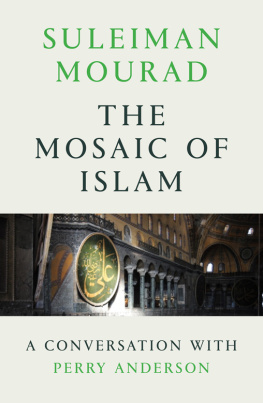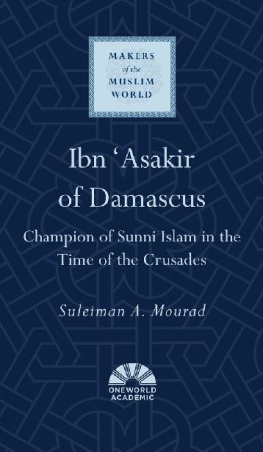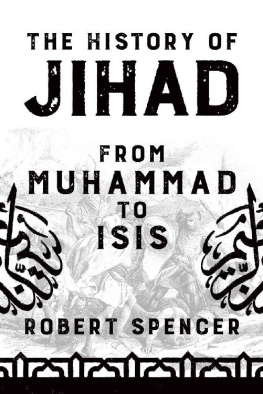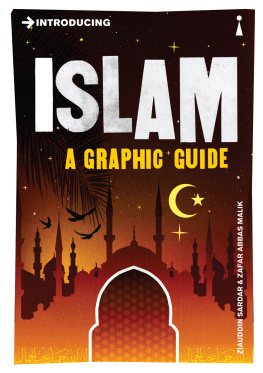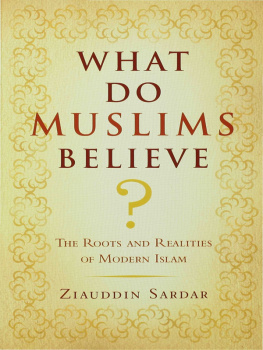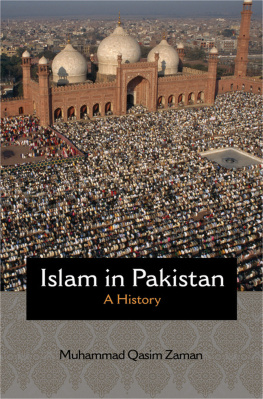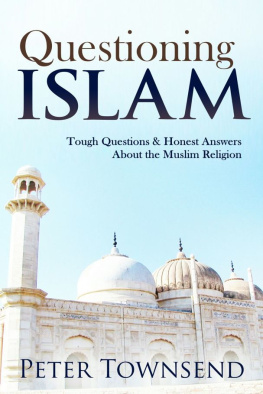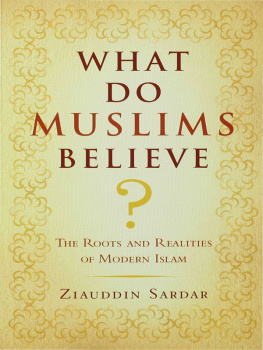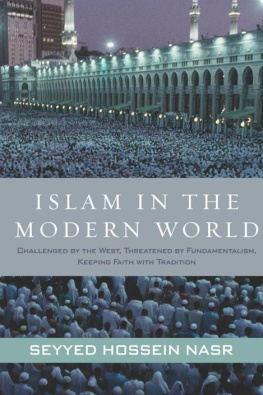The Mosaic of Islam
A Conversation with
Perry Anderson
Suleiman Mourad

First published in English by Verso 2016
Suleiman Mourad 2016
Foreword Perry Anderson 2016
All rights reserved
The moral rights of the authors have been asserted
1 3 5 7 9 10 8 6 4 2
Verso
UK: 6 Meard Street, London W1F 0EG
US: 20 Jay Street, Suite 1010, Brooklyn, NY 11201
versobooks.com
Verso is the imprint of New Left Books
ISBN-13: 978-1-78663-212-8
ISBN-13: 978-1-78663-213-5 (US EBK)
ISBN-13: 978-1-78663-211-1 (UK EBK)
British Library Cataloguing in Publication Data
A catalogue record for this book is available from the British Library
Library of Congress Cataloging-in-Publication Data
Names: Anderson, Perry, interviewee. | Mourad, Suleiman Ali, interviewer.
Title: The mosaic of Islam : a conversation with Perry Anderson / Suleiman
Mourad ; contributions by Perry Anderson.
Description: Brooklyn, NY : Verso, 2016.
Identifiers: LCCN 2016036178 | ISBN 9781786632128 (paperback)
Subjects: LCSH: IslamHistory. | Islamic sociology. | Anderson, Perry. | HistoriansInterviews. | SociologistsInterviews. | BISAC: SOCIAL SCIENCE / Islamic Studies. | RELIGION / Islam / History.
Classification: LCC BP50 .A56 2016 | DDC 297.09dc23
LC record available at https://lccn.loc.gov/2016036178
Typeset in Electra by MJ&N Gavan
Printed in the US by Maple Press
Contents
In the modern history of the West, there has never been a time when, for better or worse, Islam has attracted so much attention as today. There is more than one reason for that. Wars in the Greater Middle East, involving European powers and the United States, have raged for a quarter of a century, with no end in sight, and increasing repercussions in the West itself. In Europe, immigration from lands of the former Ottoman Empire has for the first time created a significant Muslim population, larger than that of twenty-two out of twenty-eight members of the EU. Transatlantic discourses of multiculturalism, encouraging concern with the plurality of religions at large, have led to greater interest in the faith historically the greatest rival to Christianity. Out of this conjunction of developments has come a considerable literature on contemporary issues bearing on Islam in the public domain. In no country, perhaps, has this production been more extensive than in France, where the work of political scientists like Olivier Roy and Gilles Keppel, and the debates to which these and other writers on topical questions have given rise, command a wide audience. In the Anglosphere, a writer like Malise Ruthven occupies the same space.
Distant from this arena lie traditions of Western historical scholarship about the Muslim world focused on its corpus of classical texts that go back to the sixteenth century. Here, France is distinguished by the continuity in its record of erudition, with a more or less unbroken line of Orientalist scholarship from the 1540s through to the present century, running from Guillaume Postel through Antoine Galland and Silvestre de Sacy to Louis Massignon or Jacques Berque and their descendants today.it flourished, the central discipline was typically philology, in reputation one of the most specialized and least readily accessible of the human sciences. In recent years, methodological advances in the scrutiny of texts in classical Arabic, as in other languages, have produced an increasingly sophisticated Quellenkritik, distinguishing this world of enquiry from that of current social processes or political events.
Suleiman Mourad is a historian whose work is emblematic of this progress. Born in the late sixties to a modest Sunni family in the mountains of south Lebanon, a witness to the Israeli invasion and Lebanese civil war in his youth, he was educated at the American University of Beirut at a time when most of its students were on scholarships, and its campus was relatively free of sectarian divisions. Of his teachers, three were born in Palestine (of Sunni and Arab Orthodox backgrounds), another a Lebanese who belonged to one of the first Protestant families in the country. He completed a masters thesis on the early Arab conquests under the supervision of Tarif Khalidi, a historian averse to what he termed Islamic triumphalism. In 1996, he was invited to pursue doctoral work at Yale University. There he immersed himself in language coursesSyriac, Persian, Germanneglected at AUB, and the study of religion: Islam and mysticism, the New Testament and ancient Christianity. In 2002, he got a teaching position in Vermont, and is now professor of religion at Smith College in Massachusetts.
Out of his doctoral research came his first book, a critical scrutiny of a set of famous texts attributed to one of the crosscurrents of tolerance in the collision between Muslim and Christian worlds in the Near East of the later Middle Ages. This is the cursus of a historian working in the most exacting disciplinary descent of philological erudition, as it has modernized itself.
Strikingly, however, he is at the same time not a historian detached from recent or present upheavals in the Arab and Islamic worlds, but one in fluent command of their contemporary political and intellectual landscapes. It is this combination that makes Mourad so distinctive a figure, and what he develops in this book of such interest. For here, exceptionally, the separation between historical and topical, philological and social, forms of understanding the Islam of West Asia and North Africa, literatures dealing with the past and the present, is dissolved in a single continuous set of reflections. Beginning with the composition of the Quran and its relation to Judaic and Christian forms of monotheism, it moves to the literature on the life of Muhammad, the character of the early Arab conquests, and disputes over succession to the position of caliph, generating the later division between Sunni and Shii versions of Islam. Contrary medieval interpretations of the commandment to jihad, from Abbasid to Crusader periods, segue into an analysis of contemporary doctrines of Salafism. The respective fortunes of reforming modernism and Wahhabi revivalism in recent times, and the positioning of movements such as the Muslim Brothers (Ikhwan) in Egypt or the AKP in Turkey in the theological field; the reasons why the political trajectories of Shii communities in Syria and Iraq have differed so markedly; the factors behind the transformation of North Africa from a once predominantly Shii to a homogeneously Sunni zone; the decline of the classical schools of Islamic jurisprudence; the intensification of sectarian hostilities across the Middle East since the Iranian RevolutionSuleiman Mourad illuminates all these questions, and more, with an inimitable calm, lucidity, and candor.
The extended conversation in which he does so is a product of time we spent together at the Institut dEtudes Avances at Nantes, where scholars from all over the world, and especially from the global South, are given a unique opportunity to learn from each other, across frontiers of discipline and country. Many conversations on the most variegated topics crisscrossed at its tables. Around these, over an unforgettable year, every sort of curiosity was aroused. This book is the fruit of one of them. Its form owes everything to the

